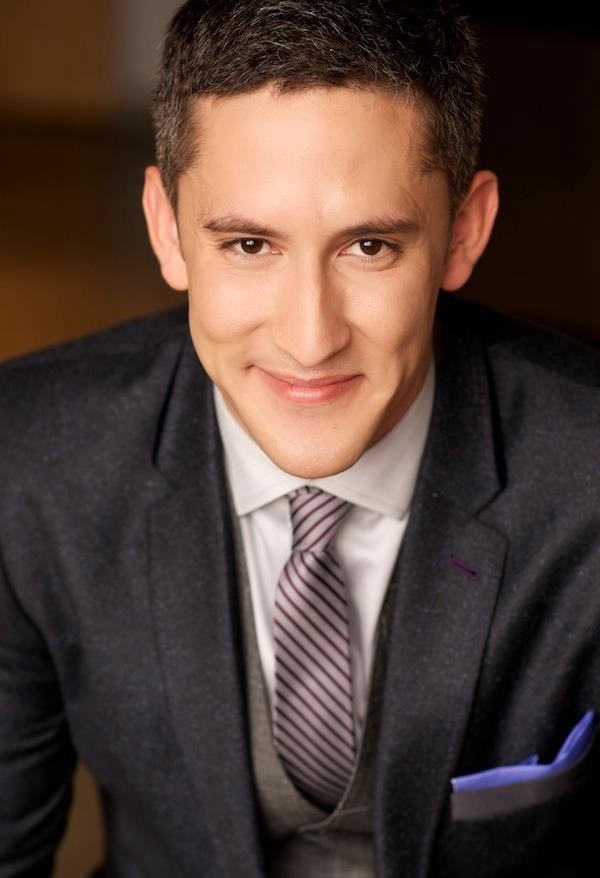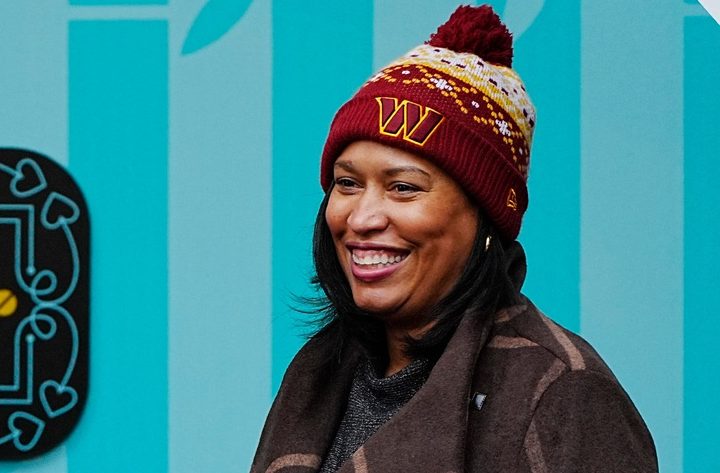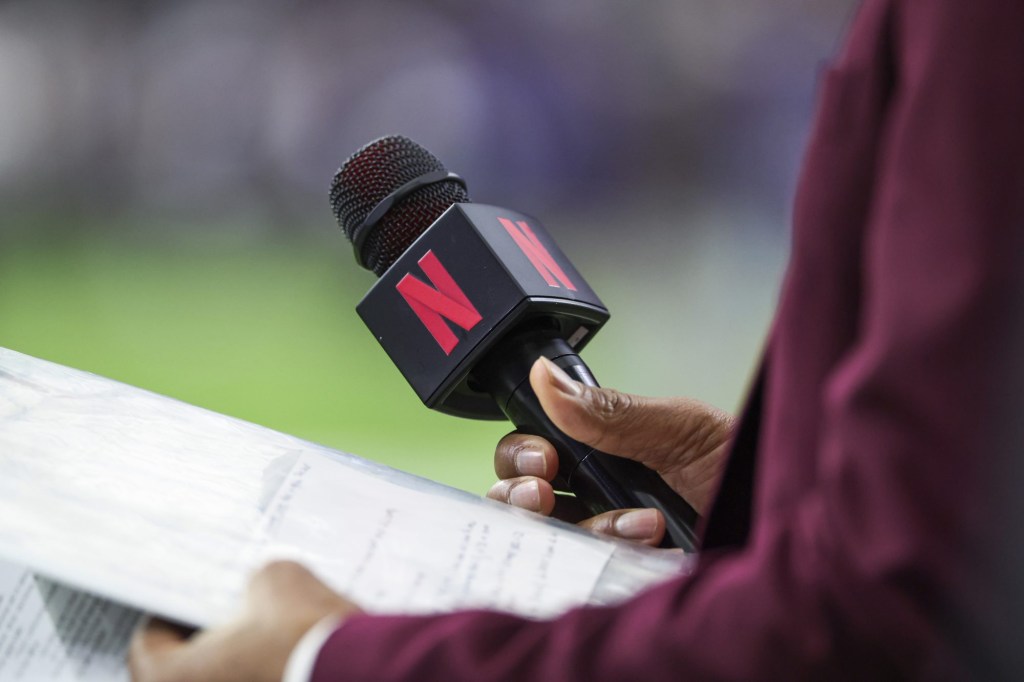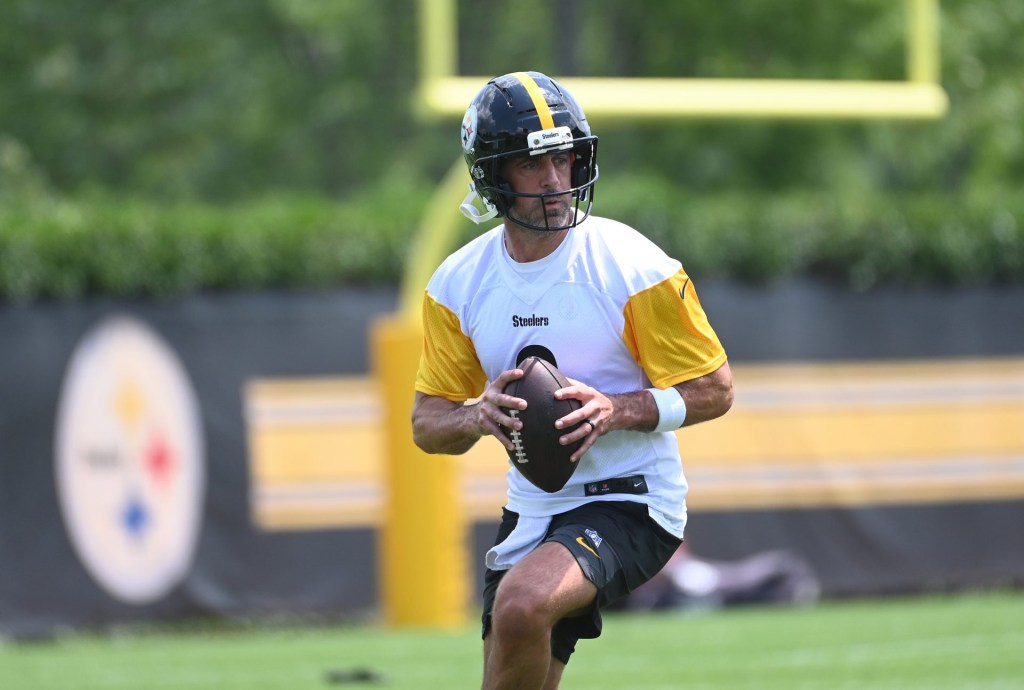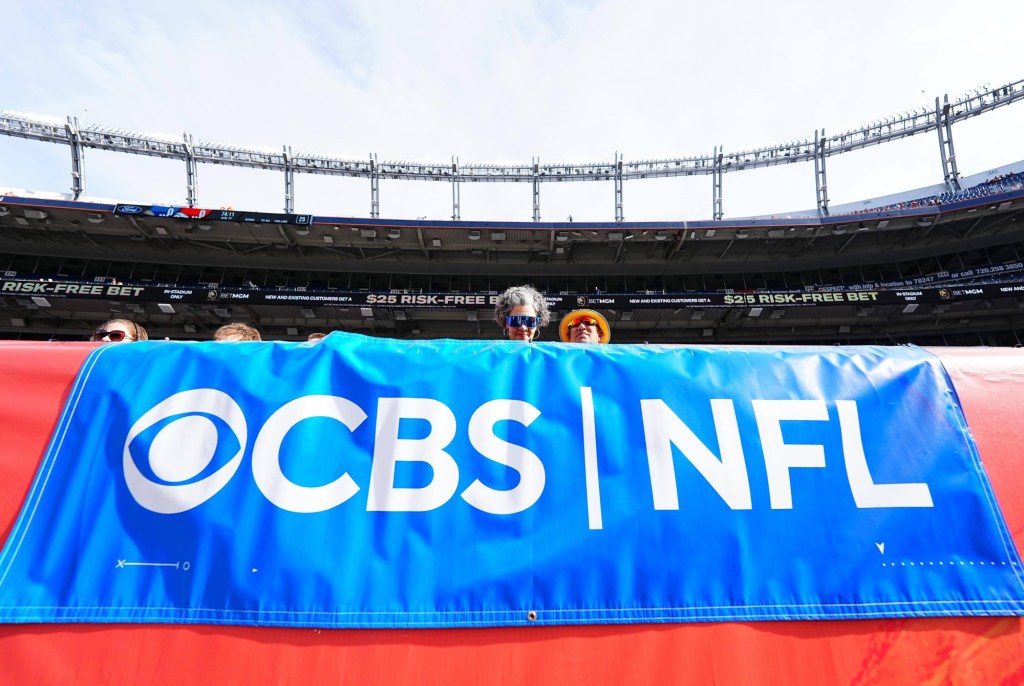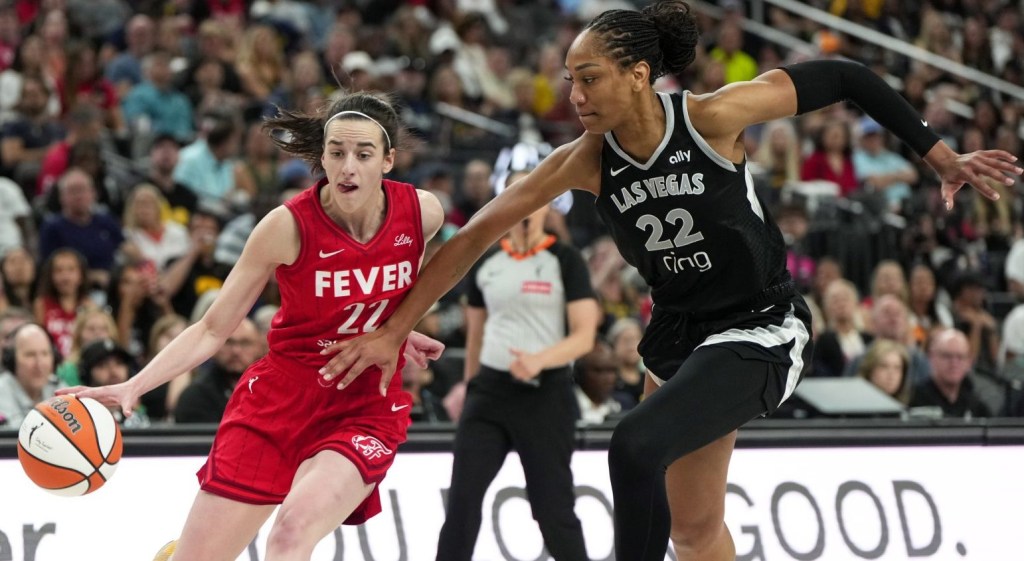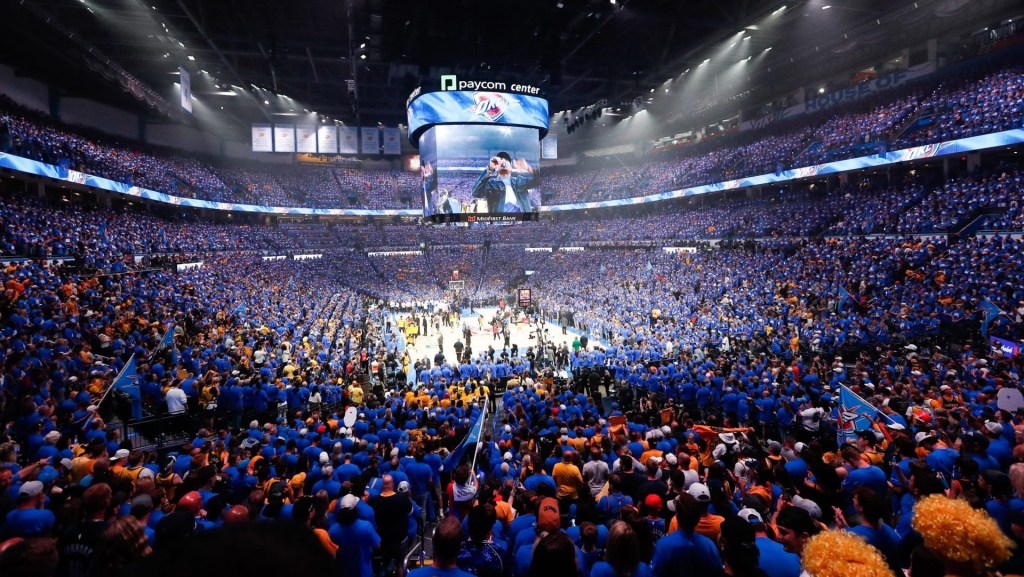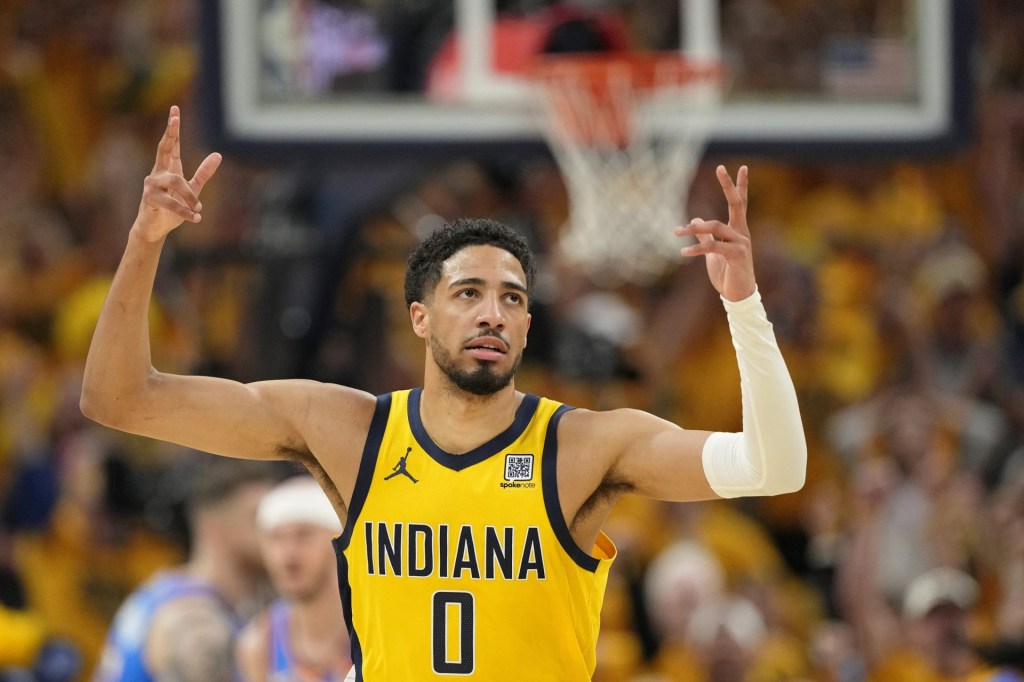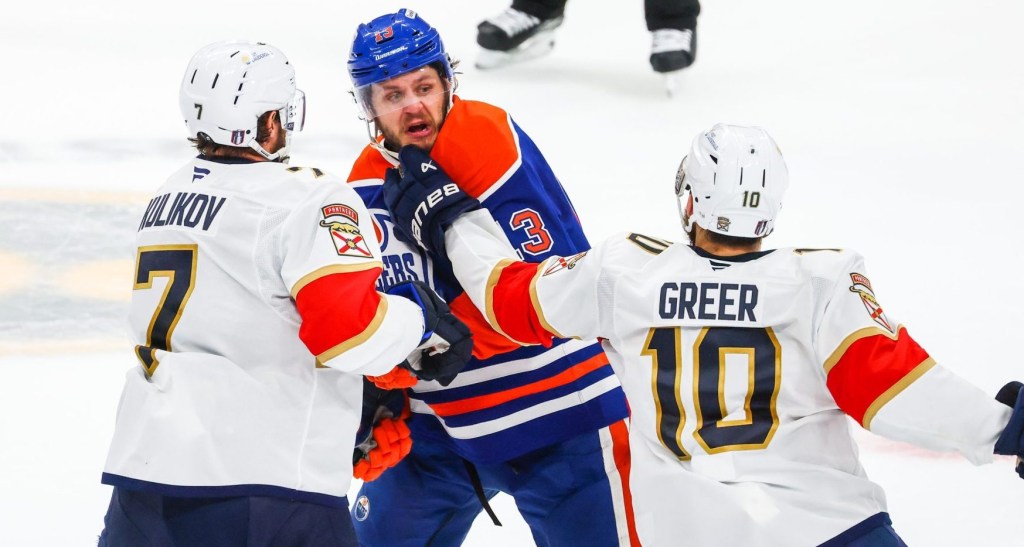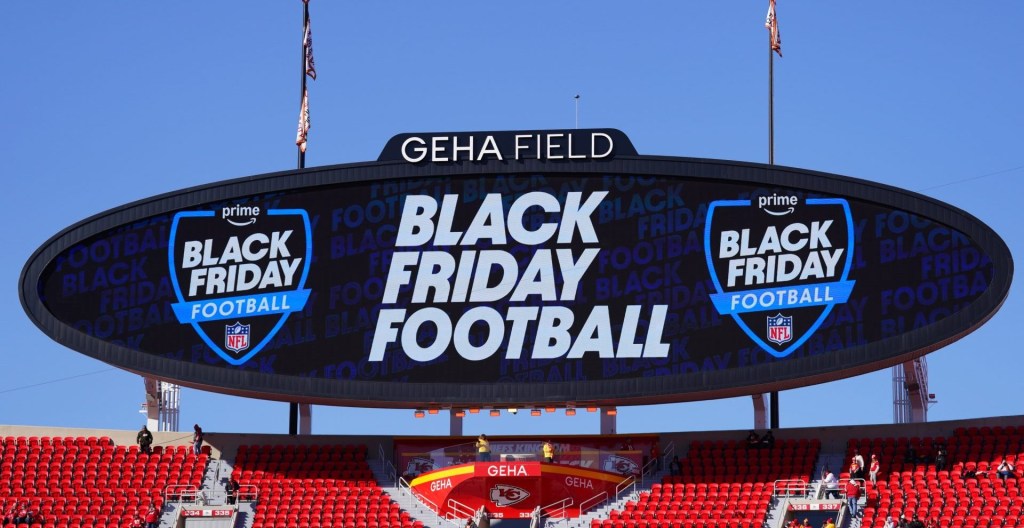This interview is presented to you by the University of Nebraska — Lincoln Master of Arts in Business with a Specialization in Intercollegiate Athletics Administration
By: Tyler Endebrock, @tjendebrock

Rand Getlin, award-winning NFL Network Reporter
When someone earns a law degree from the University of Southern California Gould School of Law, it usually means they will achieve a prestigious, high-paying job at a distinguished law firm soon after graduation. Rand Getlin understood that, but he decided to follow his heart to the world of sports, where he would endure a few bumps and bruises before landing his dream job. Front Office Sports was fortunate enough to have sat down with award-winning NFL Network Reporter Rand Getlin to learn about his journey from being a broke law school graduate to one of the most prominent sports reporters in the country.
Getlin always loved the business of sports and as a student at the University of Oregon, he jumped at the chance to assist his friends, who were professional-caliber athletes. Whether it was helping them to get through their classes, deal with the politics of playing college football, or trying to vet agents for them as they transitioned to the pros, Getlin took care of his buddies. Some of them thought Getlin could even help them in a bigger capacity as their agent.
“Knowing that they believed in me was great at the time, but if a kid told me today he wanted to pay his college buddy to represent him instead of a successful agent with 20 years experience, I’d tell him he’s out of his mind.”
However, Getlin took his friends’ sentiment and began studying exactly what sports agents do and how the industry works. He set his goal on becoming an agent, which led him to USC Law.
While Getlin was working towards completing his education and focusing on becoming a sports agent, he chose many other opportunities outside of sports to gain experience. From helping to run a political think tank and working on Capitol Hill for a republican senator, to acting as the assistant deputy political director for the democratic presidential campaign in the state of Oregon to working directly with Robert Kotick, CEO of the video game company Activision Blizzard, Getlin did it all.
After graduation and working in multiple fields, Getlin and his business partner, JD Nelson, started a consulting company called Synrgy Sports to assist athletes through their transition from college to the big-leagues. Their service was built to assist athletes in thoroughly and properly vetting prospective agents, lawyers, financial advisors, etc.
Getlin says he, “obsessively compiled data” on agents. How many times had an agent been fired by a player and why did it happen? Which agents were thriving at which schools and why was that the case? Which agents had disciplinary issues that raised questions about their ability to effectively represent their clients best interests?
“I thought the NFLPA would try to help the players out by proactively providing them with similar information, but they told me they didn’t even track firings, which completely blew my mind. But I knew Neil Stratton over at Inside The League published raw firing data periodically, so I dug into his archives and created my own master list of agent firings. I then looked for trends in the data that could help me to help these kids understand things a little bit better.”
“We did have some mini-successes. Jeff Tedford, who was at Cal, brought us in to do a presentation for his players and Jeff Jamrog, who was the Director of Operations at Nebraska at the time, brought us in to talk to the Huskers. But that was pretty much it.”
Although a couple of schools liked what they saw from Getlin, he quickly found out most the universities did not care enough about the issues their players faced to pay for a service like his.
“Not only did the schools not care, but they were very callous about it. They would make dumb jock jokes and, in essence, say they weren’t responsible for their players after they left. When we’d call them on it, some of them would get offended and say, ‘wait a second, we really do care about our players,’ but we saw through their inaction that clearly wasn’t the case.”
“That left me pretty disenchanted. I was trying to do something that was primarily altruistic. The service was supposed to cost $25,000 for year-round, comprehensive assistance for the school and anyone involved with the athlete’s decision-making process, whether it be his parents, pastor or advisor. We even did interviews with prominent players like Aaron Rodgers and Lavelle Hawkins, who said they would have loved to have a service like this since it is so hard to figure out who they can trust when selecting professional representation.”
After about a year, Getlin started to realize his business plan may have been flawed and although he had his law degree in hand, he had yet to take the bar exam. He admits that this time was probably the lowest point of his life. But if anyone has ever followed Getlin on Twitter, watched him on the TV or listened to him speak in-person, they would know it would not take long for him to bounce back on his feet.
“Towards the tail-end of trying to get our consulting company up and going, I was moving back to Oregon to live with my parents. On the way up there, the beautiful woman who I’m now lucky enough to call my wife told me, ‘It’s so wrong that these schools don’t want to help these kids. Don’t worry, you’re still going to have an impact on this system. You just need to start talking about these experiences and what you know.’”
“I asked her, ‘What do you mean?’ She said, ‘You’re going to be on TV, baby.’ I looked at her like she was crazy and said, ‘Yeah, right.’ I thanked her for believing in me, but I didn’t think much of it.”
Getlin’s then girlfriend kept pushing and telling him that he had to write to tell people how the schools were failing their athletes. She told him that the only way the system would change is if policy makers were forced to confront the inconvenient truth.

Rand Getlin speaking on the NFL Network.
So he started writing. First, for a compliance blog where he wrote about a bylaw that would allow NCAA schools to provide agent-selection consulting services to their athletes. Then, for Sports Agent Blog, which gave him even more experience writing for public consumption. Along the way, he had gotten to know Charles Robinson, a decorated investigative journalist at Yahoo! Sports.
“I got to know Charles really well, and one day I said to him, ‘Hey dude, can you get me a job doing what you do?’ Thankfully, he was willing to go to bat for me and got me a meeting with Yahoo! Sports Executive Editor Dave Morgan. Dave told me because of my skill-set, I could work on writing about the intersection of sports and law. I was super excited. Within a month, he got back to me and said they could hire me, but the starting salary would be $27,000 a year.”
“I literally couldn’t breathe when I heard how much they were going to pay me. I owed hundreds of thousands of dollars in student loans and I couldn’t figure out how I was ever going to thrive if I started on that kind of salary. Dave explained to me that I wasn’t going to be compensated like a lawyer because that’s not what he was hiring me to do. ‘You’re coming in here to be a writer and we don’t even know if you can do that yet.’”
Getlin researched the top of the investigative journalism market and found out the money the big-dogs were making was more than he would make as a third or fourth-year associate attorney. That really caught his attention.
“I thought to myself, ‘If other guys can make that kind of money, then so can I!’ I was like 27-years-old. So that response was a mixture of youthful naivety and ignorance.”
“There were about 1,000 reasons why I’d be likely to fail, but in my mind those didn’t matter. I just focused on the one reason why I might win.”
— Rand Getlin
During this turning point in his career and life, Getlin credits his wife for pushing him and keeping them afloat while he was making barely any money. Although it was a very tough point in his life, he says he would do it 100 times over again.
In a relatively short period of time, his journalism career started to explode. Getlin worked on a number of award-winning investigative journalism pieces with industry titans like Adrian Wojnarowski. The first (and only) story the two reporters collaborated examined questionable business practices inside the National Basketball Players Association (NBPA). Their reporting preceded word that a federal investigation was being conducted into the issues raised in their Yahoo! article.
After four years at Yahoo!, Getlin had worked with other sports writing legends on Yahoo’s team like Dan Wetzel and Pat Forde. He emphasizes how good Robinson and Bleacher Report’s Jason Cole were to him too. Not only did Getlin become very effective at obtaining documentary evidence, but he excelled at cultivating human sources. No matter what, he always found ways to get the information he needed to publish the stories that he felt mattered.
Unfortunately, despite Yahoo’s success in investigative journalism, it became clear that high-ranking executives in the company had lost interest in doing that kind of work. It was a painful blow to the reporters who comprised one of the more decorated I-Teams in sports journalism.
“In my fourth year at Yahoo!, a high-ranking non-editorial executive ordered a senior editor of ours to take down an investigative piece I’d written in the middle of the night. The story had been fully vetted by our editorial staff, had been up for over 12 hours and had nearly 1,000 comments on it. They eventually put it back up, but only after they had gutted it and kept it offline for hours. It was a real eye-opener. That was the organization saying, ‘We’re done with this kind of reporting.’ They made very clear that they preferred I no longer focus on investigative work and that they wanted me to start breaking transactional NFL news. I went from being a full-time investigative journalist, to only being allowed to do investigative stuff as a side hustle.”
“But investigative work and breaking news are two very different worlds. If I was going to break meaningful news, in a number of cases, I was going to have to develop relationships with guys who had come up in the course of my investigative reporting. I said, ‘a lot of these guys don’t like the work I do. Now you expect me to hand them a rose and instantly become buddies?’ Their response was basically, ‘Yeah, if that’s what it takes, that’s the new gig.’”
In that first year of reporting in 2013, Getlin admits he was stubborn. He didn’t really reach out to established news-breakers for help in figuring out the right formula to become effective in their space. He broke a few mid-tier stories, but he knew he had to improve for free agency the following season, which is the biggest stage for NFL news-breakers.
Although he could see how other reporters formatted their information, he had to teach himself what to do behind the scenes to obtain that information. He says a big piece of that was focusing on investing in relationships with a broader group of people than he had as an investigative journalist, learning what really made them tick and doing everything in his power to outwork his competition.

Rand Getlin with the NFL Network team.
Last free agency cycle, during his first year with the NFL Network and third year as an insider, he performed as well as virtually any news-breaker in the country. When the biggest news during the 2016 NFL Combine hit that Colin Kaepernick was requesting a trade, Getlin was the one who broke it. When Kelechi Osemele agreed to terms with the Raiders on a deal that paid him $2 million more than any other guard had ever gotten, Getlin broke that too. When Brock Osweiler went to the Texans instead of staying with the Broncos, Getlin was the first to let NFL fans know. Josh Norman left the Panthers to sign with the Redskins, the Chiefs failed to reach agreement with Eric Berry on a long-term deal and Von Miller agreed to terms on a six-year $114 million contract with the Broncos — all stories that Getlin broke first.
“Through my early failures, I learned so much about the business. For instance, when I was trying to get Synrgy off the ground, I read any and every thing I could get my hands on about sports or entertainment agents. Now that I look back on it, after everything I learned through that process and from the good folks who helped me along the way, I probably could’ve taught a class and charged $45,000 at USC to give guys a Master’s degree in the business of sports agents.”
“Because I failed with my consulting company, I fell forward into a $27,000 gig with Yahoo! Sports. I started by writing two terrible columns before I realized I was really good at investigative work. Then, after I really hit my stride, I was unexpectedly asked to break news on the NFL. Then, over basically a year and a half, I became good enough as a news-breaker that the NFL Network gave me a gig doing that for them. In a very short period of time, at the risk of sounding pompous, I became one of the better NFL news-breakers in this business even though I had absolutely no formal training on how to win in this space. I say that not to pat myself on the back, but to emphasize that anything is possible. You just have to believe that’s true and be willing to work harder than the next man to turn your dreams into your reality.”
Getlin professes his undying respect for the best reporters in his field, but he bluntly states his job is to defeat the man ahead of him and make sure he never gets passed by the man behind him.
“My mindset is, none of these dudes are going to beat me at my job in the long-run. My goal is to become the best NFL insider in this business. It’s a dream and a vision, and it’s what I’m committed to. If I fail, it won’t be for lack of effort. I started this race 20 laps down with a weight vest on, so in order for me to win I know I have to figure out ways to be more efficient and effective than anyone else.”
“To me, Adam Schefter is by far, the best NFL insider in the game. But I know I have the potential to be as good as him someday if I stay the course. It’s my job to figure out how to achieve that goal for myself and my family, but I also feel tremendous responsibility to inspire younger folks who want to blaze their own trail, to show them that no matter the path they take, they can make an impact.”
“I really take pride in knowing that virtually every young person who has reached out to me for advice has gotten a response. I get a lot of benefit by working with the next generation of hungry, ambitious young people who are trying to break into the business. Their energy is contagious. So it’s cool for me to be in a position to help them chart their course. It helps that I genuinely enjoy helping them chase their dreams.”
Getlin says his advice to folks trying to earn their way into the business of sports is relatively simple: Invest in real relationships, honor the people who treat you well and outwork, by any means necessary, everyone else in your field.
“If you’re being outworked, you’re failing yourself. It’s the one thing you can fully control.”
— Rand Getlin
“If you work your tail off and believe in yourself, like really believe in yourself to the point of turning down a big salary to start a company with little prospect of making real money because you know you can make a difference, you can do anything.”
“I know there are folks out there who are custom built to beat guys like me, and I look forward to the day that someone I helped along the way does surpass me. I won’t make it easy on them, but if it happens, it’ll be my proudest professional moment.”
“It’s about reaching back and helping folks achieve their dreams. Even though I’m very proud of my accomplishments and how I got here, the end game is to create a whole new generation of dreamers and doers. I tell kids I come in contact with to start working today to get to where they want to ultimately be.”
Getlin credits so much of his success to law school. He often hears people question why he had to get a JD in order to become a reporter.

Rand Getlin delivering the opening address at the 2015 University of Florida Sports Law Symposium.
“I didn’t have to, but I would do it all again if given the choice. I’d take out all the student loans and go through the stress that law school brings because it was the best training I ever could have asked for in terms of conditioning myself to think about the world in a more analytical fashion. Also, earning a JD gave me a degree of legitimacy in my space that I’m not sure I could have gotten with any other professional credential.”
With each piece of news he breaks, there’s a process he conducts behind the scenes which requires him to gather as much information as possible, sift through and analyze it, and then report on what’s really going on. If he talks to a team-side source about a given issue, he’ll talk to a player-side source too. He considers the totality of the information and makes a determination about what is most likely the truth. Though he isn’t practicing law, he’s using his legal training in unique ways.
“There isn’t another NFL reporter who has a law degree, so I’m at a great advantage there. My classmates and professors in law school challenged me and forced me to sharpen my analytical framework. That has helped me tremendously in my field. Going to USC gave me my start by equipping me with the tools necessary to write at the intersection of law and sports. I found a void in the market and filled it, but I couldn’t have done it this way if I didn’t have a law degree.”
Through everything Getlin has been through, he could not be happier than where he is today and the possibilities that await him. We would like to thank Rand for his time and the knowledge he has shared. You can follow him on Twitter, and connect with him on LinkedIn.

This interview was presented to you by the University of Nebraska — Lincoln Master of Arts in Business with a Specialization in Intercollegiate Athletics Administration
